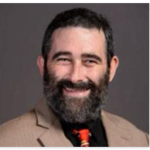 In the second of a two-part conversation between redefinED executive editor Matthew Ladner and education historian Sherman Dorn, the two veteran education choice experts continue to explore the vast landscape of school accountability and the contradictions inherent in high-stakes testing.
In the second of a two-part conversation between redefinED executive editor Matthew Ladner and education historian Sherman Dorn, the two veteran education choice experts continue to explore the vast landscape of school accountability and the contradictions inherent in high-stakes testing.
Using Dorn’s book Accountability Frankenstein as a starting point, the two discuss the educator and parent backlash to top-down attempts to hold schools accountable, the importance of academic transparency and the most effective ways to measure student performance.
You can listen to Part 1 here.
 Dorn is professor and director in the Division of Educational Leadership and Innovation at Mary Lou Fulton Teachers College, Arizona State University. Among his research interests is the history of school accountability and how schools are defined as communities.
Dorn is professor and director in the Division of Educational Leadership and Innovation at Mary Lou Fulton Teachers College, Arizona State University. Among his research interests is the history of school accountability and how schools are defined as communities.
 Ladner has served as senior advisor for policy and research at the Foundation for Excellence in Education, as a senior research fellow at the Charles Koch Institute and as vice president of research at the Goldwater Institute.
Ladner has served as senior advisor for policy and research at the Foundation for Excellence in Education, as a senior research fellow at the Charles Koch Institute and as vice president of research at the Goldwater Institute.



Matt and Sherman–I enjoyed your conversation. It’s important that people from diverse tribes have good dialogue about the issues on which they disagree. Sherman, I appreciate your willingness to give us some time.
The accountability system in Florida’s tax credit scholarship program does a good job of balancing regulation and consumer choice. Giving parents access to more and better information about their potential choices is key to improving this system.
About 400 scholarship schools in Florida are having good success using NWEA’s Measures of Academic Progress as both a summative and formative evaluation. This is working, in part, because the scholarship program’s accountability system has a better balance between regulation and choice than what most district schools operate under.
IB students spend about six weeks every spring taking exams, IB instruction is tightly aligned to these exams, and IB programs are very popular with affluent and politically influential families. There is a lesson here about what determines how people value testing.
The IB example is indeed instructive. The vibe I hear a lot is that parents feel very disconnected from state testing. In AZ for example there is a lot of test prep going on, tests given over a couple of weeks because of computerized testing, and then you still get a report on results mailed to you in August. Parents in the focus groups I referenced felt keenly aware of the costs of testing, but didn’t feel like they really got much of anything out of it. I’ve never heard anyone complain about AP exams however as there is something in it for you (shot at college credit). Given all this, a lighter footprint system along the lines we see in some of the choice programs seems like a good idea to me, as does some effort to increase the value to parents. Ironically after a couple of decades of people complaining about wanting to put private choice and district schools on the same system of testing, we’ve experienced a negative experience in Louisiana in trying to impose state testing on private schools (private schools opted not to participate.) Why not put state schools on the private choice system instead?
I agree Matt.